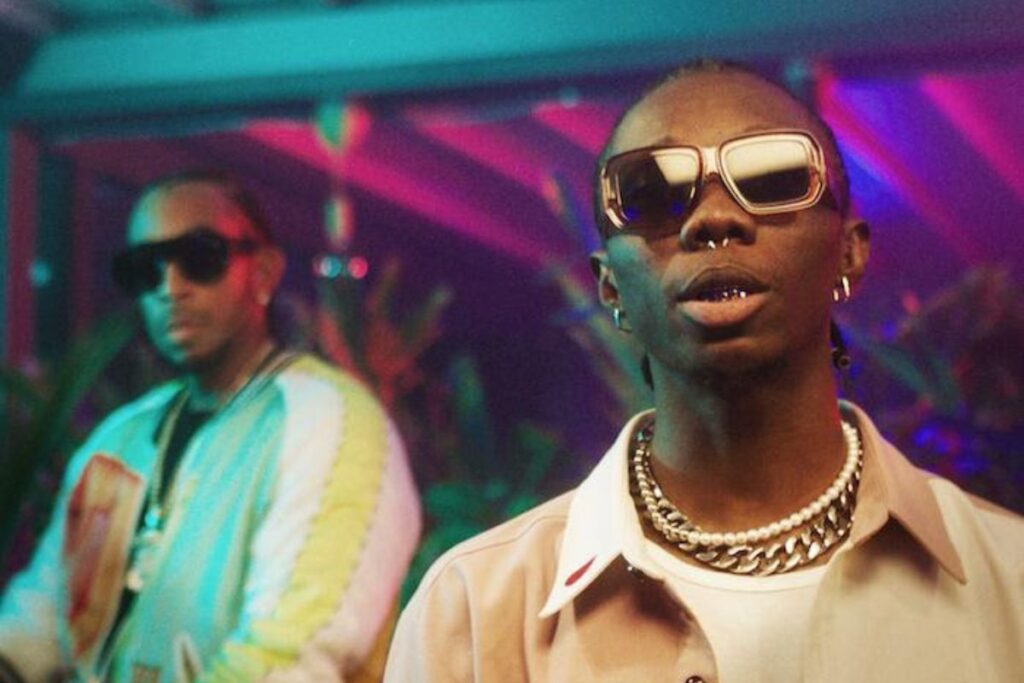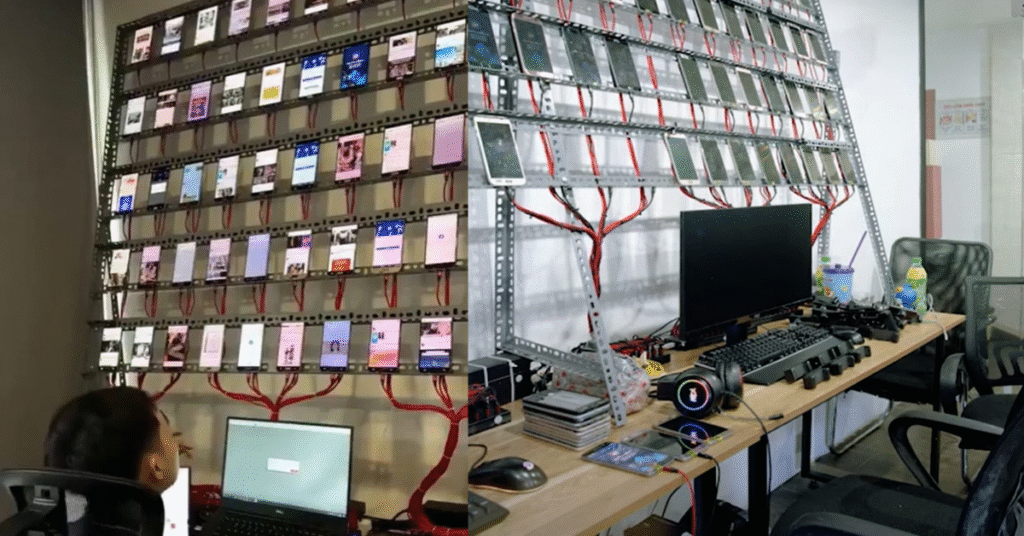Nigerian hip-hop artist Emeka Akumefule, popularly known as Blaqbonez, has once again stirred an important conversation in the Nigerian music industry; one that goes beyond diss tracks and streaming milestones.
The rapper, who is known for his sharp wit and fearless opinions, recently declared that artists should not be defined by their chart positions or streaming figures, emphasizing that numbers don’t always tell the full story of creativity or artistic worth.

His comments, made on X (formerly Twitter), came shortly after his diss track “ACL” (aimed at fellow rapper Odumodublvck) climbed to the number-one spot on Apple Music Nigeria. A fan had accused him of being “hypocritical” for celebrating a chart milestone after previously criticizing the obsession with numbers.
But Blaqbonez’s response revealed a deeper perspective about how streaming culture, data manipulation, and fan bias are reshaping the modern music ecosystem.
“Numbers Can Lie” – Blaqbonez’s Warning to the Industry
In his post, the rapper clarified that he was not dismissing the relevance of charts or streams entirely. Instead, he argued that artists shouldn’t be judged solely by those figures, as they can easily be manipulated.
“I never talked down on the charts, it’ll always be exciting,” he wrote. “But no artist should be defined by it. Most of the artists I’m currently listening to in Naija are not up on our charts.”
He added that some listeners are too quick to label musicians as “failures” or “irrelevant” simply because their songs are not topping digital rankings.
“Use your ears sometimes. If something is good, it’s good – that’s all I’m saying,” he concluded.
This statement echoes a growing concern in the global music industry: chart inflation and the use of bots to boost streaming numbers. It’s an issue that’s been whispered about for years but rarely discussed openly by mainstream Nigerian artists.
How Bots and Stream Farms Skew Reality
Behind every viral hit and chart-topping single, there’s an invisible war for visibility. Music insiders have long claimed that “stream farming” (using automated bots or paid servers to artificially inflate plays) has quietly become a tool for some labels and independent artists to appear more popular than they actually are.

According to Music Business Worldwide, the global industry loses hundreds of millions of dollars annually to fake streams. In Africa, where streaming platforms are still emerging and algorithms are less transparent, such manipulation can easily distort perceptions of success.
For an artist like Blaqbonez (who built his career on authenticity and independent hustle) the obsession with numbers undermines the essence of artistry. His argument suggests that music should be judged by quality and impact, not the raw metrics that can be gamed with money or digital tricks.
In Nigeria’s highly competitive Afrobeats and hip-hop scenes, visibility often determines survival. Artists without top-charting songs are sometimes sidelined by promoters and brands. Yet, as Blaqbonez pointed out, many of the most innovative or lyrically gifted musicians aren’t always the ones dominating the charts.
The Battle Between Art and Algorithms
Blaqbonez’s stance depicts a broader tension between artistic integrity and algorithmic validation. Streaming platforms like Spotify, Audiomack, Boomplay, and Apple Music rely heavily on algorithms that reward repeat plays, playlist placements, and viral momentum.
This has created an environment where artists feel pressured to make algorithm-friendly music (short songs, catchy hooks, and trendy beats) rather than taking creative risks.
In a 2024 interview with Pulse Nigeria, music critic Joey Akan described it as “the TikTok-ification of music,” where virality matters more than value. “Songs are being made for algorithms, not audiences,” he said.
Blaqbonez’s frustration, then, isn’t about the charts themselves but about what they represent; a system that often prioritizes visibility over originality.
The Music Numbers Game
Nigeria’s entertainment industry thrives on perception. Chart rankings, YouTube views, and stream counts are often used as the ultimate indicators of success. But many insiders argue that those numbers can be misleading.
An anonymous record executive once admitted to The Guardian Nigeria that “stream manipulation happens across all levels,” adding that “some artists pay to appear bigger than they really are because perception sells.”
The result is a cycle where fans reward visibility rather than consistency, and talented artists without massive budgets or label support struggle to get recognition.
That’s why Blaqbonez’s argument is hitting a nerve. He’s not merely defending himself from critics, and he is challenging the very definition of success in modern Nigerian music.
What makes Blaqbonez’s statement credible is that he has consistently spoken about integrity in his craft. Over the years, he’s built a reputation as one of Nigeria’s most articulate rappers, blending satire, social commentary, and self-promotion in a way few can match.
His albums ranging from “Sex Over Love” to “Young Preacher” demonstrate that he’s not afraid to experiment sonically or lyrically. He’s also one of the few artists openly critical of the fake image culture in entertainment.
When his diss track “ACL” climbed the charts, he celebrated not because of the numbers, but because it sparked conversation and creativity – two things he believes matter more than temporary rankings.
This balance between confidence and critique has made him both controversial and respected. In a generation where many chase validation through streaming data, Blaqbonez stands as an example of someone advocating for a return to substance.
READ ALSO: Top 10 Nasarawa State Artists with the Most Digital Streams in 2025
Fans, Fandoms, and the Power of Independent Thinking
Blaqbonez’s message also speaks to fans; the real gatekeepers of Nigerian music culture. With the rise of “stan culture,” where fanbases often attack rival artists and inflate online statistics, objectivity has become rare.
He’s essentially asking fans to listen with open ears, not blind loyalty.
By encouraging people to judge music by quality rather than metrics, Blaqbonez is pushing for a healthier music ecosystem, one that values diversity of taste and rewards innovation.
Interestingly, his statement echoes sentiments shared by international artists like Adele, Ed Sheeran, and J. Cole, who’ve all criticized the overemphasis on numbers in defining artistic success.
As J. Cole famously said, “If you base your worth on stats, you’ll never feel fulfilled.” Blaqbonez’s take is a Nigerian extension of that truth.
What Should Define Success?
Blaqbonez’s comments invite a larger national question: What truly defines musical success in Nigeria today?
Is it the number of streams? Or the number of genuine listeners? Or the cultural and emotional impact a song has?
For instance, classics like 9ice’s “Gongo Aso” or Styl-Plus’s “Olufunmi” were massive hits before streaming even existed. Their success was built on connection, not data — people bought CDs, called radio stations, and sang along at weddings.
Today’s digital economy has its benefits (artists can reach global audiences without major label deals) but it also brings distortion. Blaqbonez’s caution serves as a reminder that art should always come before analytics.


